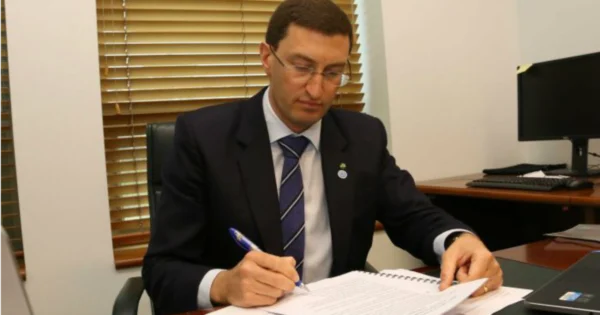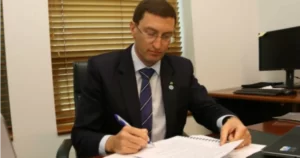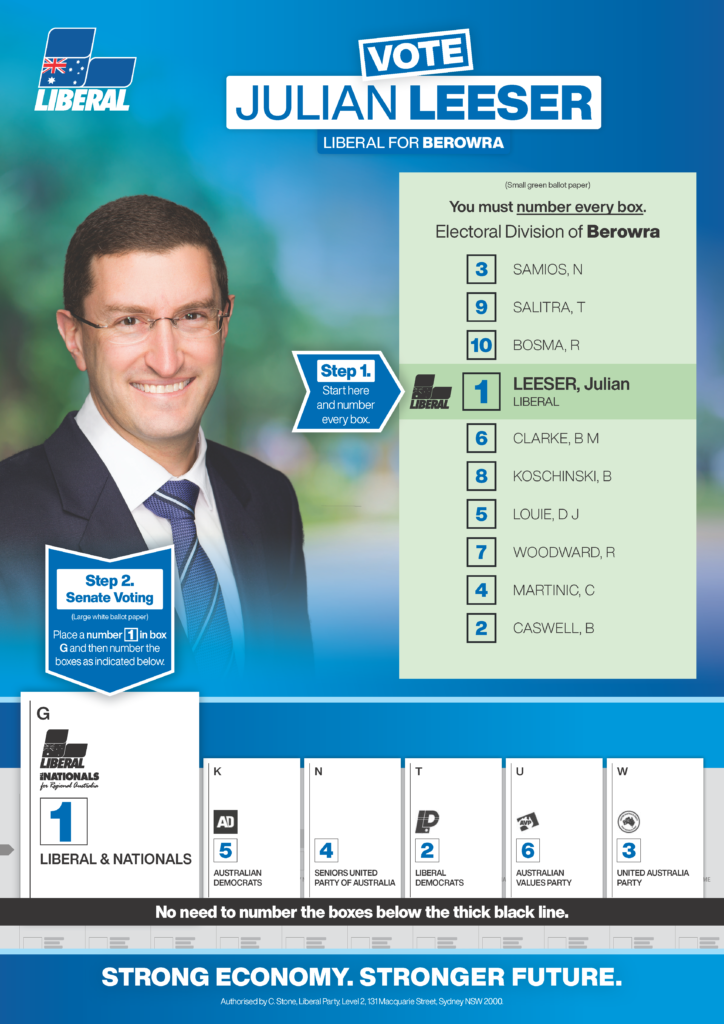The world is no longer the safe place we all imagined five, ten and twenty years ago.
Communist China’s flirtation with free trade, dialogue and engagement has ended. Instead, it seeks to control and coerce its neighbours.
Dictators and autocrats from Moscow to Tehran, and Beijing to Pyongyang are coalescing in a Twenty-First Century cold war. Democracies face an ongoing battle against state sponsored cyber crime and cyber warfare, misinformation, boycotts, the funding of violent actors and in some places in the world, assassination hit squads.
At the same time, domestic pressures in the United States are challenging our assumptions about the reliability of Australia’s greatest friend and ally.
This has led small and mid-sized democracies to ask themselves: how can we defend ourselves against aggression from the arc of autocrats?
The answer was found in Ukraine. We learned that democracies can stand together and repel the mania of dictators.
This week marks two years since the start of Russia’s war on Ukraine.
At the time, defence analysts wrote off Ukraine predicting an immediate and decisive Russian view. The view was so overwhelming that President Biden offered President Zelensky an easy escape. In a line that will live through the ages, President Zelesky said “The fight is here: I need ammunition not a ride”.
With a selfie outside his own capital, Zelensky took on one of the Goliath’s of our age. Two years on, Russia is bogged down in a conflict which has exposed the corrosion of Russian strength under the dictator Putin.
Instead of a war between strength and weakness, we have witnessed a battle between good and evil, where the moral reserves of the Ukrainian people along with the practical support of the EU and the AUKUS nations have been matching Russian might.
Ukraine chose to risk all and stand on its feet, rather than to live on their knees.
In so doing, this action has revealed a new pathway for democracies like Australia to defend themselves against superpowers.
Zelensky’s approach was to ask like minded democracies for weapons rather than for boots on the ground. To commit resources not blood.
Ukraine has become a salient lesson to dictators around the world that even a small nation can be strong if it has good friends and national resolve.
For the most part, Australia has been a good faithful friend to Ukraine. In a small way, we experienced the terrors of Vladimir Putin when Russian backed rebels shot down a passenger jet killing 298 innocents including 38 Australians. The murder this week of Russian opposition figure Alexey Navalny is a stark reminder of Putin’s absolute murderous intent.
As Scott Morrison said when President Zelensky addressed the Federal Government, Australia stands with the “lion of democracy” and not “the war criminal from Moscow”.
It has been surprising to see in recent months, the Albanese Government’s support of Ukraine has become somewhat half-hearted.
That half-heartedness is best expressed by the government’s decision to reject a request from Ukraine to give them our discarded Taipan helicopters.
Australia has used the Taipan helicopter since 2007. They sustained Australian involvement and operations in Iraq and Afghanistan. However, following a series of incidents and a tragic training accident that cost four lives last year, the Government decided to scrap the Taipan.
It was shortly after the Government made the announcement that Ukraine asked Australia if they could have the helicopters.
Ukraine didn’t want the helicopters for offensive purposes, rather they wanted to use them to transport the injured to hospitals.
With Ukraine experiencing 30,000 casualties a month, many of whom bleed out before reaching medical attention, their view is the risk of a possible helicopter mishap is a risk they are willing to carry given the potential number of lives the helicopters could save.
In a way only the Ukrainians understand, the equations of war are calculated differently than the equations of peace. Sadly, this is something the defence bureaucrats in Canberra don’t understand.
The Ukrainians had been told they were too late as the helicopters had been dismantled and buried.
To the credit of the forensic work of Senator David Fawcett, himself a former ADF experimental test pilot, evidence has come to light that the Taipas are in fact safe, and many have not been stripped of their parts.
It is clearly not too late to pause the dismantling of the fleet and provide it to Ukraine in line with its request.
The Albanese Government must immediately clarify why it will not respond to new evidence and instruct Defence to pause the burial of Australia’s MRH-90 Taipan helicopters.
Equally, Ukraine has asked Australia for coal to help keep the lights on and to stay warm in a brutal climate. As Ukrainian representatives have said, the coal is “not a lifestyle decision” but a matter of survival. Whilst the previous government provided such a shipment, the Albanese Government is dithering, worrying that the idea of coal will somehow trigger the wrath of their political ally the Greens.
It is the weirdness of our time that the Greens find themselves instinctive allies of Putin and the anti-women and anti-LGBTIQ Hamas, rather than the democratic nations where freedom and debate flourish.
Peter Dutton is right when he says this is an age requiring moral clarity. It is also an age where Australia must show resolve. There is no better place than the front-line of the war between autocrats and democrats which is Ukraine.
We can start by providing the life-saving helicopters that the Ukrainians have begged us for.




